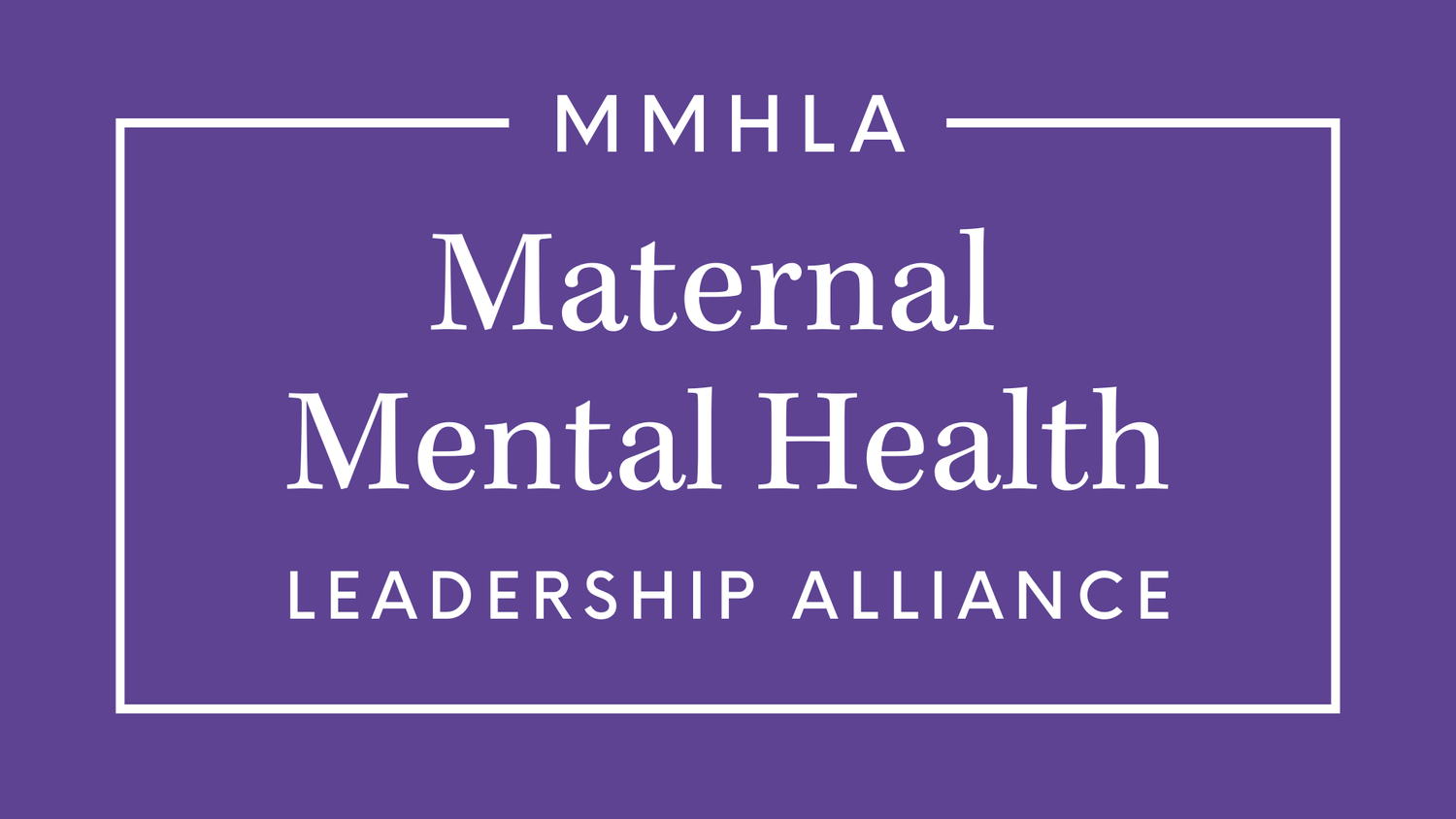Black Maternal Mental Health: the Data, the Barriers, and Organizations to Support
February is Black History Month — a time of celebration, education, and action.
The purpose of this article is to:
Provide Education on the current landscape of Black maternal mental health.
Share the Work we are doing to make racial equity a foundational component of our work.
Uplift Black Women-Led Organizations that support Black mothers, Black birthing people, and their communities.
The Current Landscape of Black Maternal Mental Health (MMH)
The Numbers
Almost 40% of Black mothers and birthing people experience maternal mental health (MMH) conditions.
Compared to white women, Black women are twice as likely to experience MMH conditions but half as likely to receive treatment.
Black women experience maternal mortality rates 3-4 times the rate of white women.
Black women are one of the most under-treated groups for depression in the U.S.
Over 50% of postpartum depression cases in women of color go unreported.
The Barriers
Systemic and Interpersonal Racism
The cumulative effect of systemic and interpersonal racism takes a toll on the physical and emotional health of Black people. Stress, anxiety, and fear all increase the likelihood of developing MMH conditions.
Distrust of the Health Care System
Historically, many Black people have been mistreated and harmed by medical providers, creating deep mistrust of the health care system.
Shame and Stigma
The pressure of social stigma encourages Black people to keep their problems private to avoid appearing crazy, weak, or lacking faith. Having to be a “strong Black woman” prevents many women from seeking help.
Fear of Child Protective Services
Child welfare workers deem Black mothers unfit at a higher rate than white mothers, even when controlling for factors such as education and income.
Logistical Barriers
Issues such as transportation, time off from work, and childcare can prevent women from seeking care.
Screening Tools
Most mental health screening tools were developed based on primarily white research participants. These tools do not assess for beliefs and attitudes that are grounded in culture and religion, nor do they assess for physical symptoms, which Black people often use to describe their feelings of depression.
For citations and more information, download our Black Women, Birthing People, and Maternal Mental Health Fact Sheet.
Racial Equity as a Foundational Component of MMHLA’s Policy Work
As one of the leading policy advocacy organizations in maternal mental health, we view racial equity as a critical responsibility, and we are taking concrete steps to incorporate racial equity into all our work.
A key piece of our ongoing racial equity work and commitment is our Racial Equity Framework, which helps us mainstream and apply principles of racial equity to make more effective policy decisions.
We apply the Racial Equity Framework when we consider supporting an existing or proposed policy, and it guides us in the development of equitable, inclusive, and effective policies and initiatives.
The Framework encourages racial equity in policy development by:
Centering the identity, experiences, and self-identified needs of people of color and those with lived experience by requiring the inclusion of these communities in the decision-making process.
Encouraging thoughtful and thorough decision making that does not allow for the disregard of systemic racism.
Download the Racial Equity Framework here.
We also recognize that the rising tide of racial justice sets an excellent foundation for addressing additional health disparities.
While the primary purpose of the Framework is to address racial disparities in maternal mental health, the foundation of the Framework may be applied to additional health disparities (e.g. those driven by sexuality, gender, religion, disability, etc). However, these additional efforts should not detract from the primary focus of unearthing and addressing racial disparities in health.
Finally, we acknowledge that true equity is a continuous process to which we are committed as an organization.
MMHLA’s Board of Advisors Assisted in Crafting the Racial Equity Framework
In 2021, MMHLA convened a diverse and multidisciplinary Board of Advisors to center the voices of those with lived maternal mental health experiences and professional expertise in our advocacy efforts.
The Advisors were charged with providing guidance on how MMHLA can best incorporate principles of racial equity into policies, practice, and advocacy.
The Board of Advisors included individuals with lived experience with maternal mental health conditions, along with the healthcare and mental health professionals who care for them.
We actively sought Advisors representing diversity in experience, background, geography, gender, race, ethnicity, and family situation, and our goal was to promote an atmosphere of inclusiveness, respect, understanding, and acceptance.
The Board of Advisors met five times and provided input and guidance on both the Racial Equity Framework and use of inclusive language.
The Board of Advisors was supported by Terri Wright, PhD, a member of MMHLA’s Board of Directors and an expert in racial equity, and Aminat Balogun, MPH, MMHLA’s Project Manager.
Meet Our Board of Advisors
We are grateful to everyone who participated in our Board of Advisors. Their insights, education, and experiences were invaluable in crafting the Racial Equity Framework.
Terri Wright, PhD
Racial Equity Expert
Aminat Balogun, MPH
Project Manager
Dominique Charlot-Swilley, PhD
Washington, D.C.
Martha Escudero
California
Kimberly Gray
California
Ana Romero, LCSW
Florida
Melissa Simon, MD, MPH
Illinois
Jua Fluellen
Washington, D.C.
Chanel Jones
New York
Surya Sabhapathy, MD, MPH
Illinois
Amy Stiffarm, MPH
Montana
Deepika Goyal, PhD, MS, BSN, FNP-C
California
Gerald Lowe, RN
Virginia
Ivy Sias, NCC, LPC-S, PMH-C
Louisiana
Uplifting Black Women-Led Organizations
We uplift organizations that are dedicated to improving the health and well-being of Black mothers and birthing people. Visit their websites to learn how you can support these organizations in their important work.
























